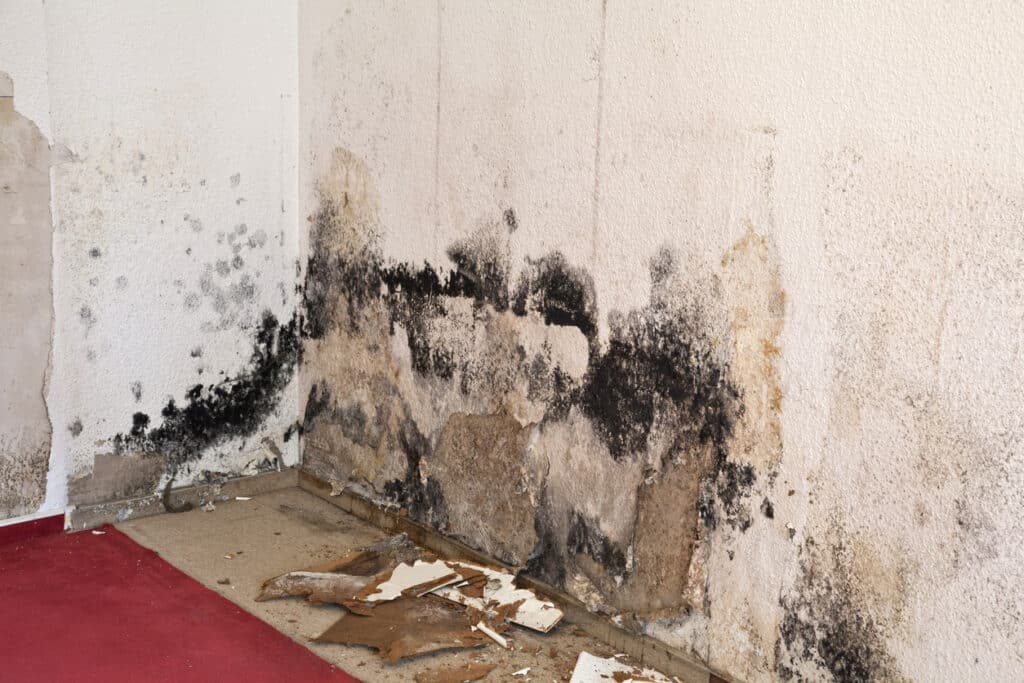Mold is a common household issue that many people might overlook, considering it merely an aesthetic problem or a minor nuisance. However, mold can have serious health implications for you and your family. Understanding the potential health risks associated with mold can help you take the necessary steps to prevent and remediate mold growth in your home.
What Is Mold?
Mold is a type of fungus that grows in moist environments. It can be found both indoors and outdoors, thriving particularly well in damp, warm, and humid conditions. Common indoor areas where mold can grow include bathrooms, kitchens, basements, and anywhere with water damage or high humidity levels.
Health Effects of Mold Exposure
Respiratory Issues: Mold spores, when inhaled, can cause a variety of respiratory problems. Common symptoms include coughing, wheezing, shortness of breath, and nasal congestion. For individuals with asthma or other pre-existing respiratory conditions, mold exposure can exacerbate these issues and lead to more severe attacks
Allergic Reactions: Many people are allergic to mold spores, which can trigger symptoms similar to other allergies, such as sneezing, runny or stuffy nose, itchy or watery eyes, and skin rashes. These reactions can be immediate or delayed and can vary in severity depending on the level of exposure and the individual’s sensitivity
Chronic Health Conditions: Long-term exposure to mold can lead to more serious health problems. Chronic sinusitis, a condition characterized by prolonged inflammation of the sinuses, can develop from ongoing mold exposure. There is also evidence to suggest that mold exposure can contribute to the development of chronic respiratory conditions and even impact cognitive function over time.
Toxic Mold: Some molds produce mycotoxins, which are toxic compounds that can cause serious health effects. Stachybotrys chartarum, commonly known as black mold, is a notorious example. Exposure to mycotoxins can lead to severe health issues, including neurological problems, immune system suppression, and in extreme cases, even death. Symptoms of mycotoxin exposure include chronic fatigue, headaches, dizziness, and difficulty concentrating.
Who Is Most at Risk to Mold?
Children: Young children are particularly vulnerable to mold exposure because their respiratory and immune systems are still developing. Exposure to mold can lead to chronic respiratory problems, allergies, and even impact their cognitive development and academic performance. Helping keep clean air in schools and homes is at the core of businesses like Green Home Solutions.
Elderly Individuals: Older adults are also at higher risk due to weakened immune systems and pre-existing health conditions. Mold exposure can exacerbate chronic conditions and lead to more severe health outcomes.
Individuals with Compromised Immune Systems: Those with compromised immune systems, such as individuals undergoing chemotherapy, people with HIV/AIDS, or those on immunosuppressive medications, are at a greater risk of severe health complications from mold exposure.
Preventing Mold Growth
To protect your family from the health risks associated with mold, it’s essential to prevent mold growth in your home. Here are some tips:
Control Humidity Levels: Keep indoor humidity levels below 60%, ideally between 30-50%. Use dehumidifiers and air conditioners during humid months to maintain appropriate humidity levels.
Fix Leaks Promptly: Repair any leaks in roofs, walls, or plumbing as soon as possible to prevent mold from developing in moist areas.
Ventilate: Ensure proper ventilation in high-moisture areas such as bathrooms, kitchens, and laundry rooms. Use exhaust fans or open windows to reduce humidity.
Clean and Dry: Clean and dry any areas affected by water damage within 24-48 hours to prevent mold growth. Regularly clean areas prone to mold, such as showers and basements.
Use Mold-Resistant Products: Consider using mold-resistant drywall, insulation, and paint in areas susceptible to mold growth.
Conclusion
Mold is more than just an unsightly problem; it poses significant health risks that can impact your family’s well-being. By understanding the dangers of mold and taking proactive steps to prevent its growth, you can create a safer, healthier living environment for your family. If you suspect mold in your home, consider consulting a professional mold remediation service to address the issue effectively and safely.
